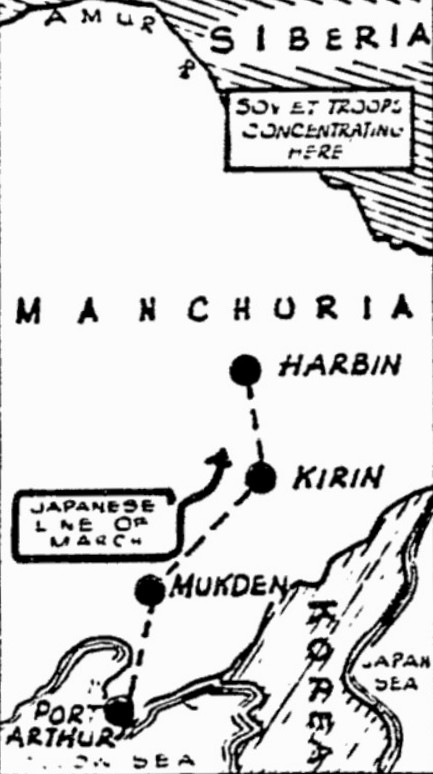The Pittsburgh Press (September 23, 1931)
Soviet troops mass in East
Russians mobilizing along Manchurian border, Peiping hears

PEIPING, China (UP) – Soviet troops were mobilizing today along the Manchurian border, unconfirmed reports from Harbin said.
Red Army units were assembling at Manchuli, a border town, the reports said.
The alarming news followed dispatches revealing that a Japanese army had entered North Manchuria and was nearing Harbin.
Harbin is several hundred miles from Mukden, which was seized Saturday in the Japanese invasion of Manchuria.
Peiping alarmed
The report of the Soviet mobilization greatly alarmed Peiping. The Chinese Eastern Railway, long a center of contention in the Far East, passes through Harbin and authorities here fear Russia may seize the line.
Soviet officials yesterday offered to furnish 3,000 troops and airplanes to guard the railway, which is owned jointly by Russia and China. The offer was refused.
The continued Japanese advance into Chinese territory indicates the Nipponese intend to seize Kirin as well as Liaoning province. The city of Kirin was captured yesterday.
Army defies Tokyo
Foreign military attaches here believe the Japanese commanders are advancing in defiance of cabinet instructions from Tokio. Dispatches from Tokio today said the cabinet had decided no troops were to be sent north of Changchun, a city in Liaoning province, 100 miles south of Harbin.
Japanese forces today captured Tunhua, completing seizure of Chinese railroads in Manchuria. Tunhua is near the Korean border.
The Nationalist government today refused to negotiate directly with Japan in the dispute and reiterated its demands that the League of Nations intervene under the Kellogg anti-war treaty and the League covenant against aggression.
High feeling against the Japanese was illustrated when China refused to accept 4,000 tons of food sent from Japan for relief of flood sufferers. Although supplies are urgently needed, the Japanese contribution was termed “bitter bread” in view of the occupation of Manchuria.